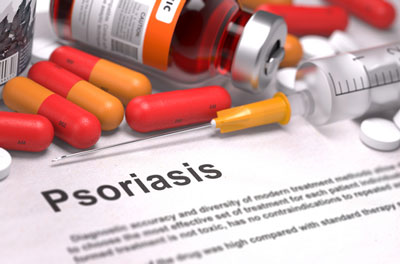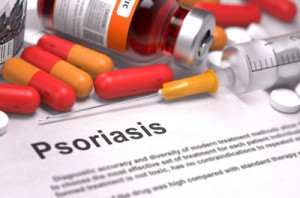Phase 2b findings demonstrate efficacy of guselkumab in treatment of moderate to severe plaque psoriasis
Posted: 9 July 2015 |
A trial of has shown up to 86% of patients with psoriasis receiving guselkumab achieved a PGA score of cleared psoriasis or minimal psoriasis at week 16…


Results from a Janssen Research & Development-sponsored Phase 2b trial showed up to 86% of patients with moderate to severe plaque psoriasis receiving guselkumab achieved a Physician’s Global Assessment (PGA) score of cleared psoriasis or minimal psoriasis at week 16.


The X-PLORE study showed significantly higher levels of efficacy for all guselkumab doses at week 16 when compared with the placebo group, and responses were maintained through week 40 of the study. The trial also included an active comparator arm, which showed several guselkumab dosage regimens provided better response rates compared with the anti-tumour necrosis factor (TNF)-alpha agent, adalimumab (Humira®). Guselkumab is an investigational human monoclonal antibody that targets the protein interleukin (IL)-23, and is currently in Phase 3 development as a subcutaneously administered therapy for the treatment of moderate to severe plaque psoriasis.
“The Phase 2b guselkumab study results show that blockade of IL-23 resulted in significant skin clearance, and improvements continued through week 40 with every eight- or twelve-week maintenance treatment,” said Professor Kristian Reich, Ph.D., M.D, Dermatologikum Hamburg, Hamburg, Germany, study investigator. “These findings provide important insights into the role of IL-23 in the pathogenesis of psoriasis and the potential therapeutic benefit of guselkumab. Findings from the Phase 3 guselkumab studies will provide greater insights into the efficacy and safety profile of this novel monoclonal antibody.”
X-PLORE is a dose-ranging seven-arm study in which participants received either placebo, guselkumab (five dose groups: 5 mg at weeks 0, 4 then every 12 weeks; 15 mg every eight weeks; 50 mg at weeks 0, 4 then every 12 weeks; 100 mg every eight weeks; and 200 mg at weeks 0, 4 then every 12 weeks) or adalimumab (80 mg initial dose, followed by 40 mg every other week starting one week after initial dose).
Enrollment has been completed for a Phase 3 trial of guselkumab
At week 16, significantly higher proportions of guselkumab-treated patients achieved PGA 0 (cleared psoriasis) or 1 (minimal psoriasis) compared with patients receiving placebo across all dose groups. According to major secondary endpoints, at week 16, significantly higher proportions of patients receiving guselkumab achieved at least a 75% or 90% improvement in the Psoriasis Area Severity Index (PASI 75 or PASI 90, respectively): 44% and 34%, respectively (5 mg); 76% and 34%, respectively (15 mg); 81% and 45%, respectively (50 mg); 79% and 62%, respectively (100 mg); and 81% and 57%, respectively (200 mg), compared with 5% and 2%, respectively in the placebo group. Patients in all guselkumab groups achieved greater improvement in Dermatology Life Quality Index (DLQI) score from baseline to week 16 compared with placebo.
After week 16, the proportions of guselkumab-treated patients achieving a PGA score of 0 or 1, PASI 75 and PASI 90 remained consistent or showed additional improvement. Moreover, complete clearance (PGA 0 and PASI 100) was observed in 62% and 54%, respectively, of patients in the guselkumab 100 mg dose group after 40 weeks of continuous treatment.
Guselkumab at doses of 50 mg, 100 mg and 200 mg showed higher efficacy when compared with the adalimumab treatment group. Significantly greater proportions of patients in the guselkumab 50 mg, 100 mg and 200 mg groups achieved a PGA score of 0 or 1 at week 16 compared with the adalimumab group (58%). Similarly, significantly greater proportions of guselkumab-treated patients in the 50 mg (71%), 100 mg (77%) and 200 mg (81%) groups achieved a PGA score of 0 or 1 at week 40 than the adalimumab-treated group (49%).
“The guselkumab Phase 2b study shows the potential of targeting IL-23 alone, an important, specific cytokine active in immune-mediated diseases,” said Newman Yeilding, M.D., Head of Immunology Development, Janssen Research & Development, LLC. “We recently completed enrollment for the guselkumab Phase 3 clinical programme and remain committed to advancing the understanding and treatment of psoriasis for both patients and physicians.”
The results are published today The New England Journal of Medicine.




